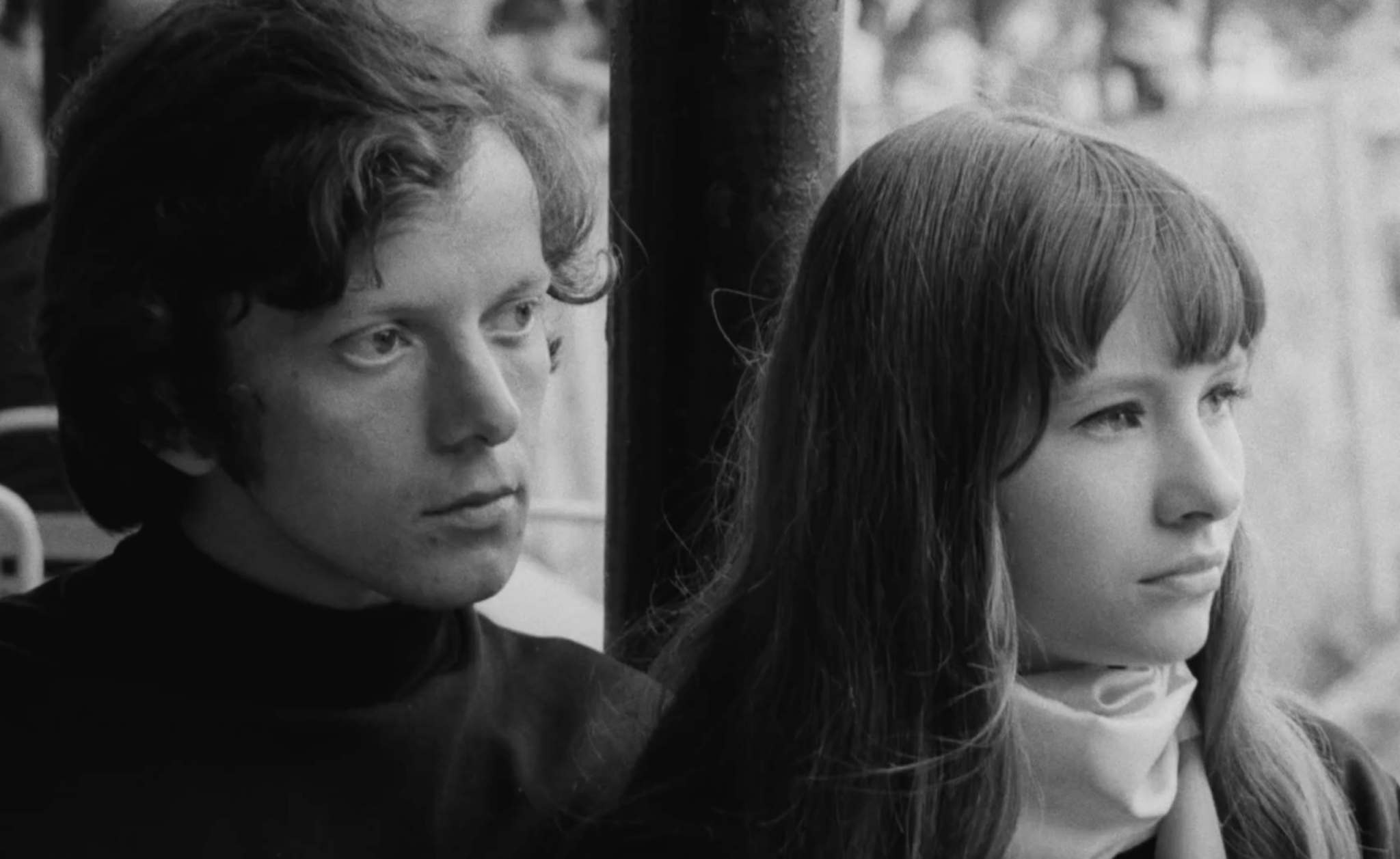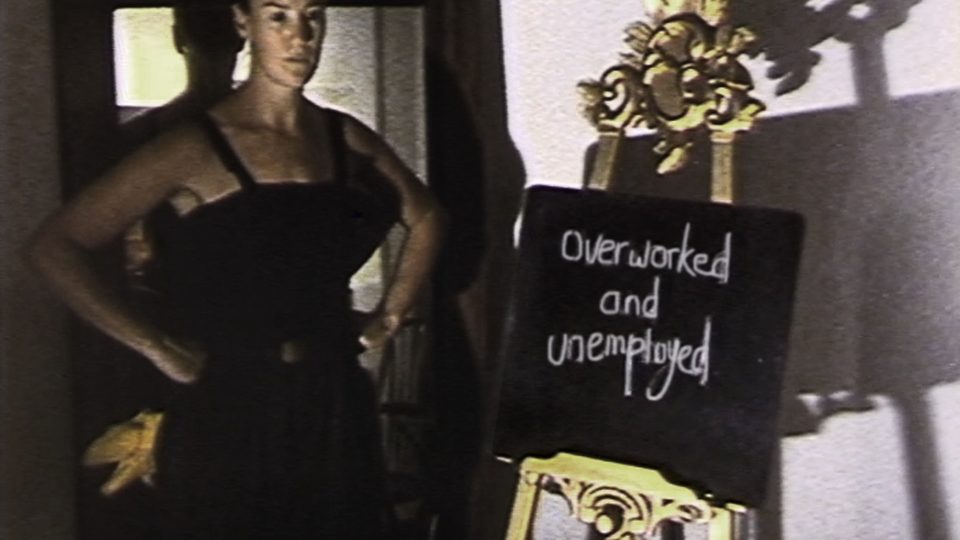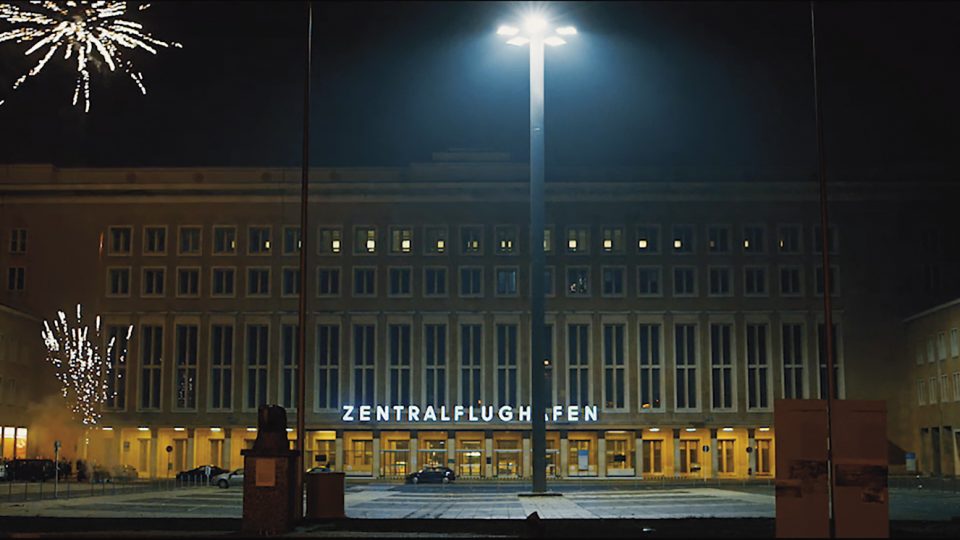
Berwick Film & Media Arts Festival has followed most film festivals this year in moving its edition online. Barring some geo-blocking, about which one can never be entirely sure, it’s a great opportunity for viewers who may not have been able to otherwise visit this intensely curated festival in person. While the festival is winding down quickly, and only a few more days remain to take in everything it has to offer, luckily the program itself is streamlined, albeit diverse. Berwick Festival’s Essential Cinema is a great place to start.
The Hungarian director Márta Mészáros won a Golden Bear for her film, Adoption (1975), and yet most viewers have had little opportunity to discover her work since. Luckily, Mészáros’s films have undergone restoration, and in 2019, she was paid a tribute at Berlinale (I wrote a piece on Mészáros and a number of other, mostly feminist filmmakers, for Sight & Sound). Now Berwick is showing her fantastic, inventive and playful debut feature, Don’t Cry, Pretty Girls! (1970). Mészáros takes a compassionate look at a group of young, mostly country youth, transplanted to the city, and dividing their days between factory work and partying and music. In fact, there is so much music in the film that, at times, one has an inkling that Mészáros thought of it slyly as a musical — or an ode to musicals and to music. Not that the actors sing. Instead, music is the connective tissue between scenes, either signaling changes in mood, locale and narrative, or as an event. The buoyancy of this design reminds one a bit of Agnès Varda’s One Sings, the Other Doesn’t (1977). And as with Varda, you could very much say that Mészáros intends her film to have a feminist ring to it. It’s not a manifesto, perhaps, in a Vardian vein, but rather a jaunty, beer-and-hormones fueled trip of self-discovery: The young Juli (Jaroslava Schallerová) is courted by the two-timing (or perhaps multi-timing) flirtatious Savanyú (Márk Zala). But when Juli gets a sense of Savanyú’s somewhat slack intentions, she briefly disregards their engagement to go off on a weekend with a talented musician.
Poignant, playful, shot with tremendous tactile feeling and breadth — the overhead shots of Juli and her lover on the vast planes are some of most breathtaking, and gorgeously expand the screen canvas, to create a sense of depth, distance and movement — Mészáros’s film is definitely one to treasure, not to mention a bright, joyous spot in any cinephile’s viewing.
Don’t Cry, Pretty Girls! is, in some ways, an ideal segue into Berwick’s presentation of Ulrike Ottinger’s Paris Calligrammes (2020), in which the German revolutionary director and artist documents her time in Paris, in the 1960s, particularly the artistic, intellectual and political fervor that surrounded the Latin Quarter and a legendary bookstore in Saint-Germain-des-Prés. If you’re in the mood for delightful vignettes, with Marx Ernst, Tristan Tzara and other art and literary luminaries making an appearance, this is just the match. Ottinger’s film is also about her own process of becoming an artist (sometimes earnest, sometimes tongue-in-cheek). Besides the textural richness of snapped-up conversations and locations documented with love — now beaming at us across time, with an unmistakable nostalgic aura — there’s a real verve, and intent, in Ottinger’s brisk telling.
Finally, Berwick’s Essential Cinema program brings this year an unexpected standout (indeed, a rare event): Badnam Basti (1971), a New Wave film by the Indian director Prem Kapoor. For reasons I’m not privy to, Kapoor appears to have never followed in the modernist, avant-garde direction of his debut feature. Instead, I’m told there is at least one other film of his available on the Internet (without subtitles), which shows him venturing into a much more mainstream, commercial, and even pad cinema. This shouldn’t deter anyone, however. Kapoor is so free in his thrilling, experimental melodrama — itself a rare amalgam, in which both Bollywood and experimental impulses mix freely — it’s an enormous, sometimes startling pleasure to watch it. Freeze frames, parallel split frames — such as an image of a woman’s feet, in a split frame — accompany more conventional framing.
The topic itself — a middle-aged truck-driver’s feelings of being torn between a young woman he once loved, and whom he finds again after many years, and his passion for a younger, inaccessible man — assures that this rare, wonderful film simply must be seen, as a precursor to the contemporary LGBTQ+ cinema. The triangulation, and both, the subtlety and urgency of sexual feeling, are handled beautifully.

